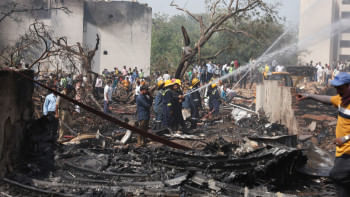World Diabetes Day: A global call echoed in Bangladesh

Each year, as November 14th approaches, communities around the world unite to observe World Diabetes Day. This day, transcending national boundaries, is not just a call for awareness but a rallying cry for action against a disease that impacts millions. Its significance is deeply felt in Bangladesh, a country grappling with a rising tide of diabetes cases.
The origins of World Diabetes Day date back to 1991, established through a collaboration between the International Diabetes Federation (IDF) and the World Health Organization (WHO). This initiative aimed to combat the growing concern of diabetes globally. The chosen date, November 14th, pays homage to Sir Frederick Banting, whose discovery of insulin in 1922 revolutionised diabetes treatment.
Initially, World Diabetes Day focused on raising awareness about diabetes risk factors and symptoms, a mission crucial for countries like Bangladesh, where public health education is essential. However, with the United Nations' recognition of the day in 2006, the scope expanded, emphasising the need for robust global and national responses to this escalating health challenge.
In Bangladesh, the impact of World Diabetes Day has been profound. The country faces a unique set of challenges in combating diabetes. Rapid urbanisation, lifestyle changes, and economic growth have led to an increase in non-communicable diseases, with diabetes at the forefront. According to recent estimates, Bangladesh is home to a significant number of the world's diabetic population, a figure that is rising steadily.
The day's observance in Bangladesh involves various activities, including free diabetes screening camps, public seminars, and awareness campaigns, particularly in rural areas with limited access to healthcare. These efforts are crucial in a country where a significant portion of the diabetic population remains undiagnosed and where healthcare resources are often stretched thin.
Bangladesh's government, NGOs, and private sector participants play a vital role in commemorating this day. They collaborate to enhance public understanding of diabetes, promote healthier lifestyles, and improve access to affordable healthcare. Landmarks across the country are illuminated in blue, mirroring global efforts and symbolising the unity in fighting this common enemy.
he journey of World Diabetes Day from its inception to the present reflects the evolving understanding and approach to diabetes care. While initially centred on education and prevention, the focus has broadened to include better policies, improved healthcare services, and increased investment in research and development, mirroring Bangladesh's own evolving healthcare strategies.
In conclusion, World Diabetes Day is a poignant reminder of the ongoing struggle against diabetes, a battle Bangladesh participates in actively. From awareness campaigns to policy advocacy, the day marks a moment of global and national solidarity against a disease that affects millions. As the world observes this day, Bangladesh joins in, reaffirming its commitment to combating diabetes through sustained effort and collaboration. This day is a reminder that the fight against diabetes is not just a personal battle but a collective endeavour that spans nations and cultures.
The writer is a National Professor.

 For all latest news, follow The Daily Star's Google News channel.
For all latest news, follow The Daily Star's Google News channel. 



Comments